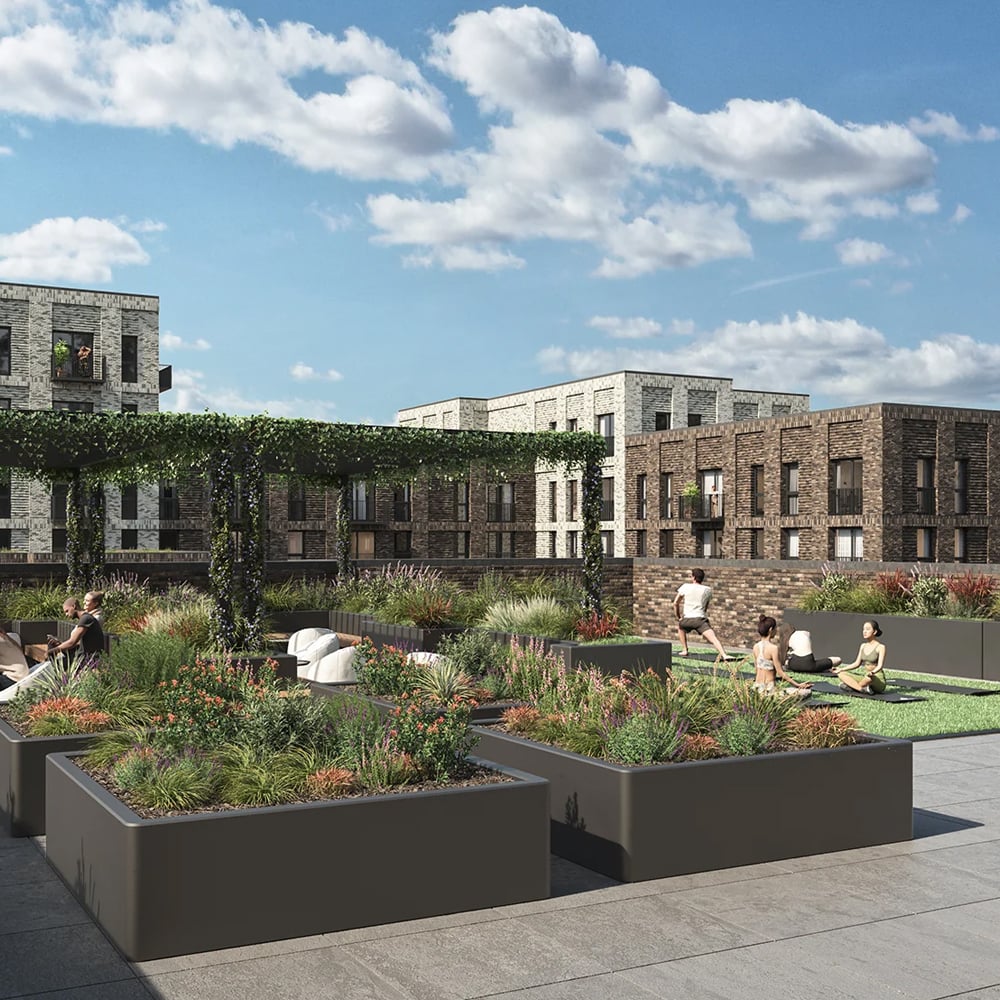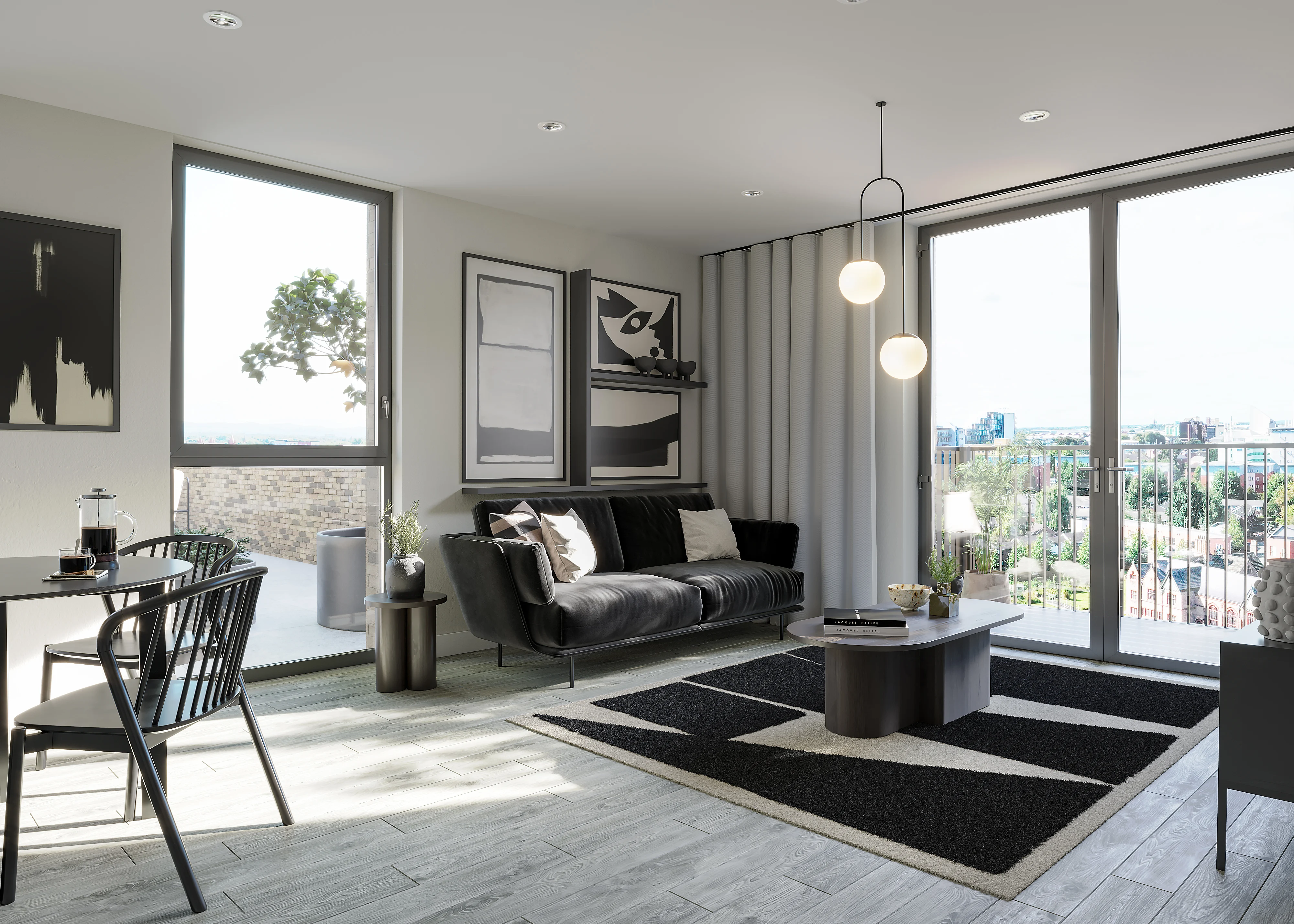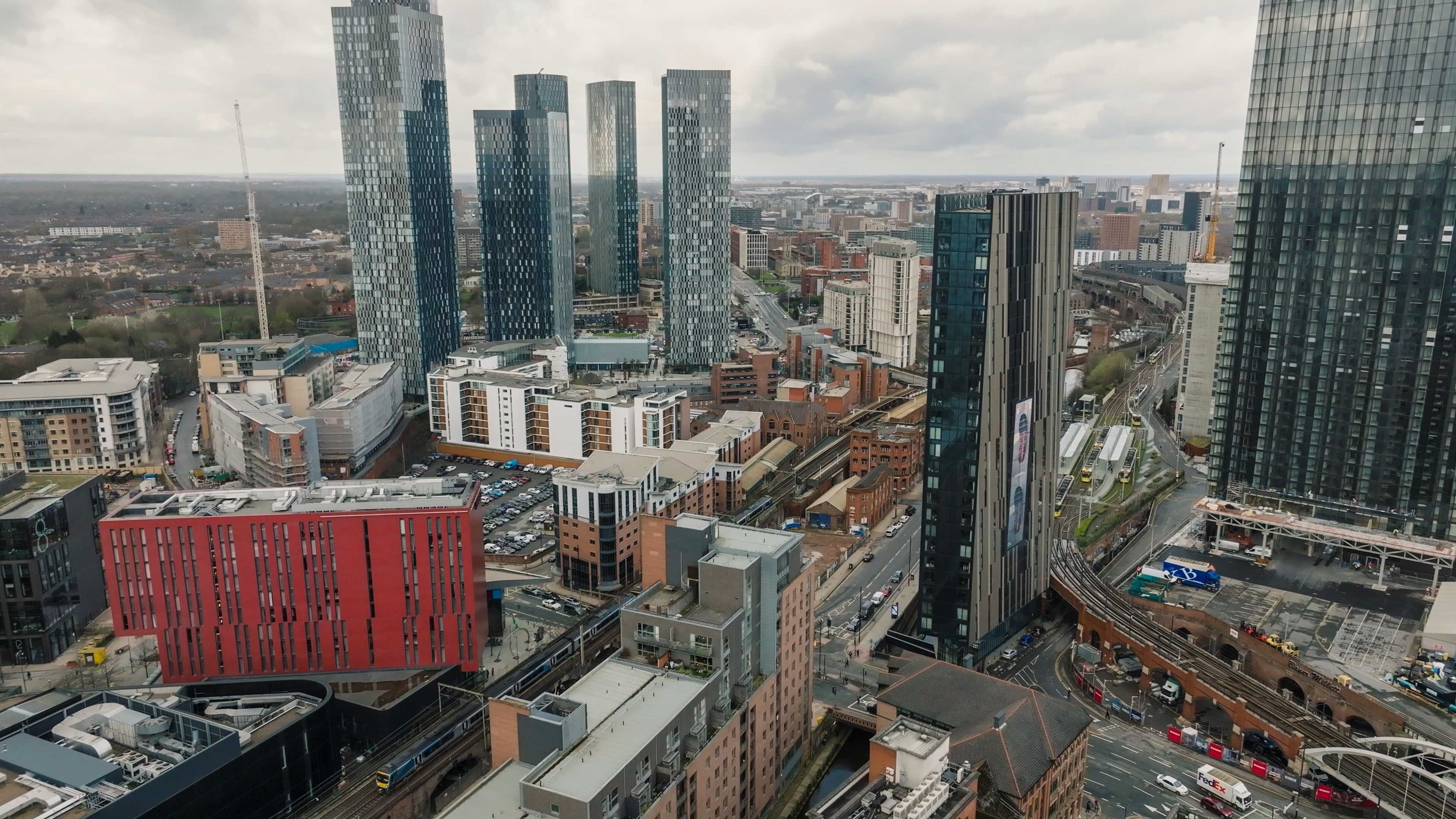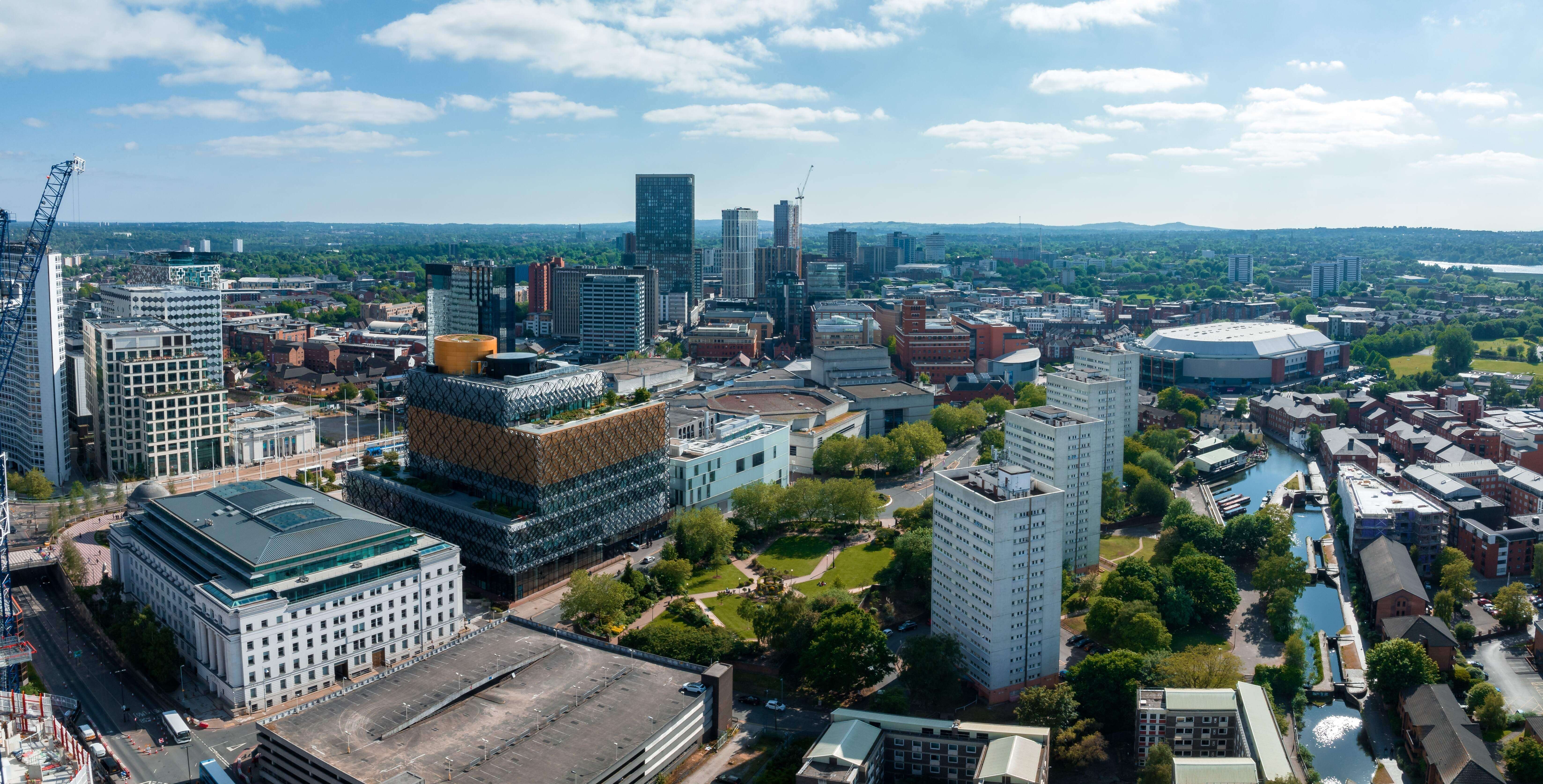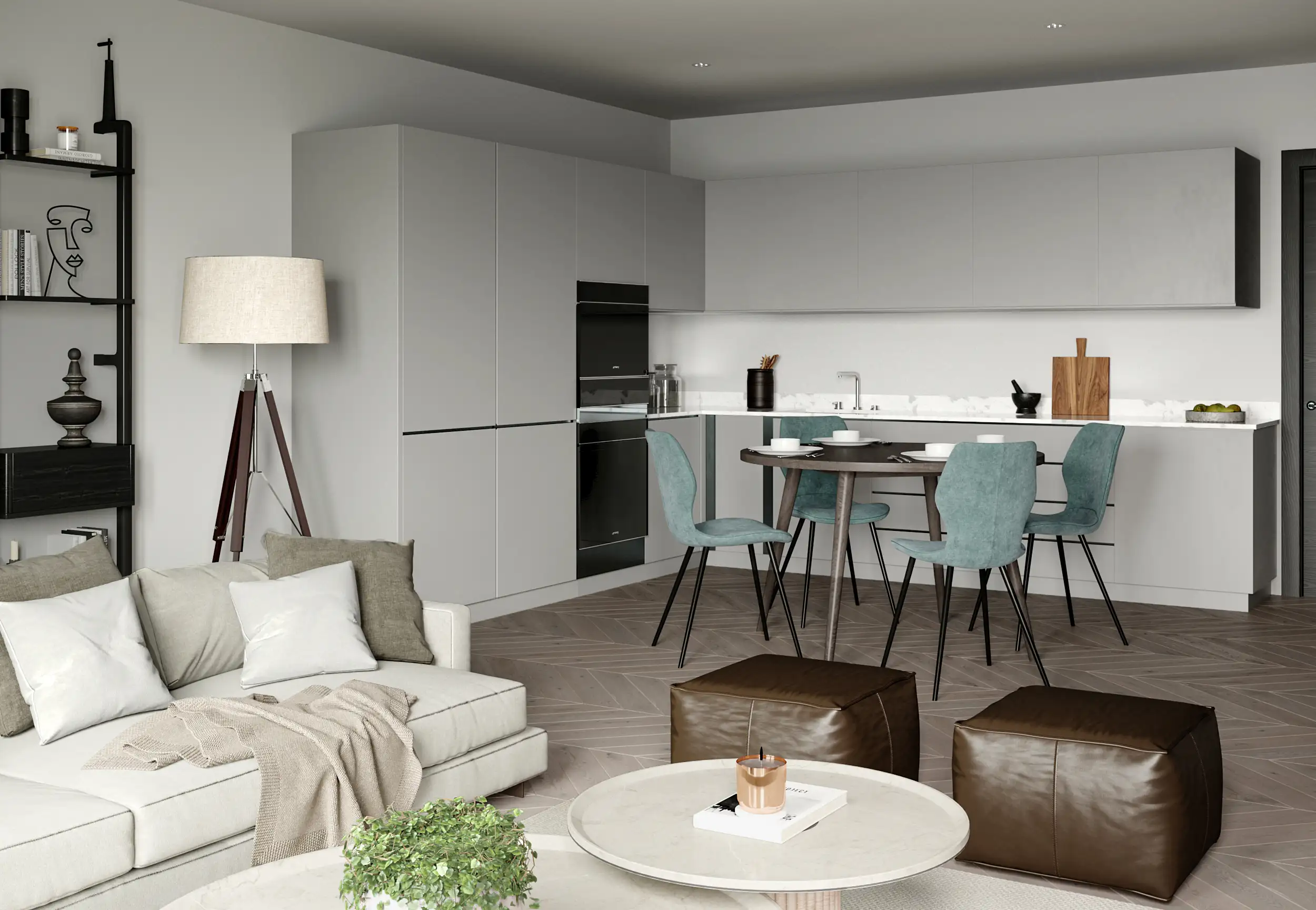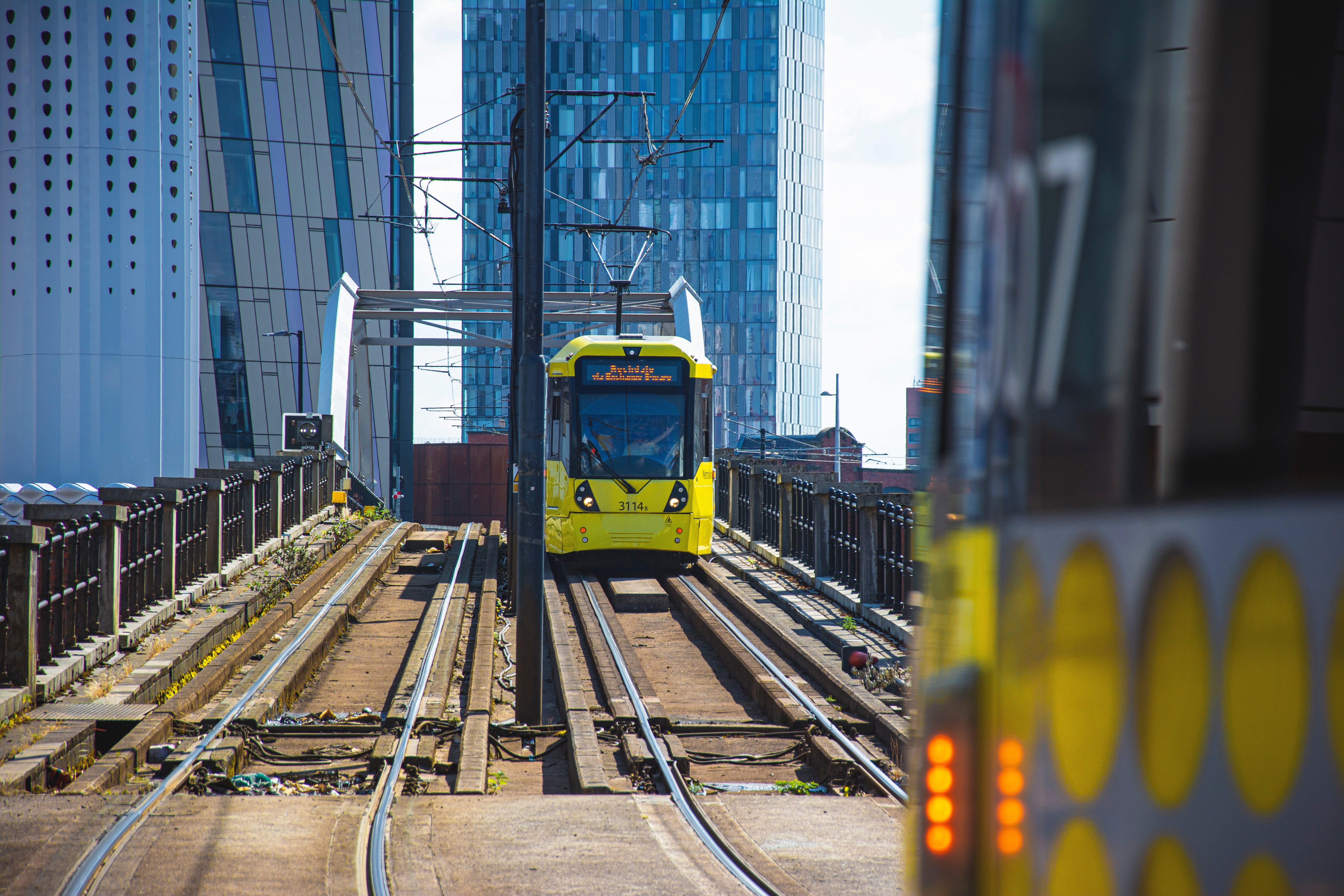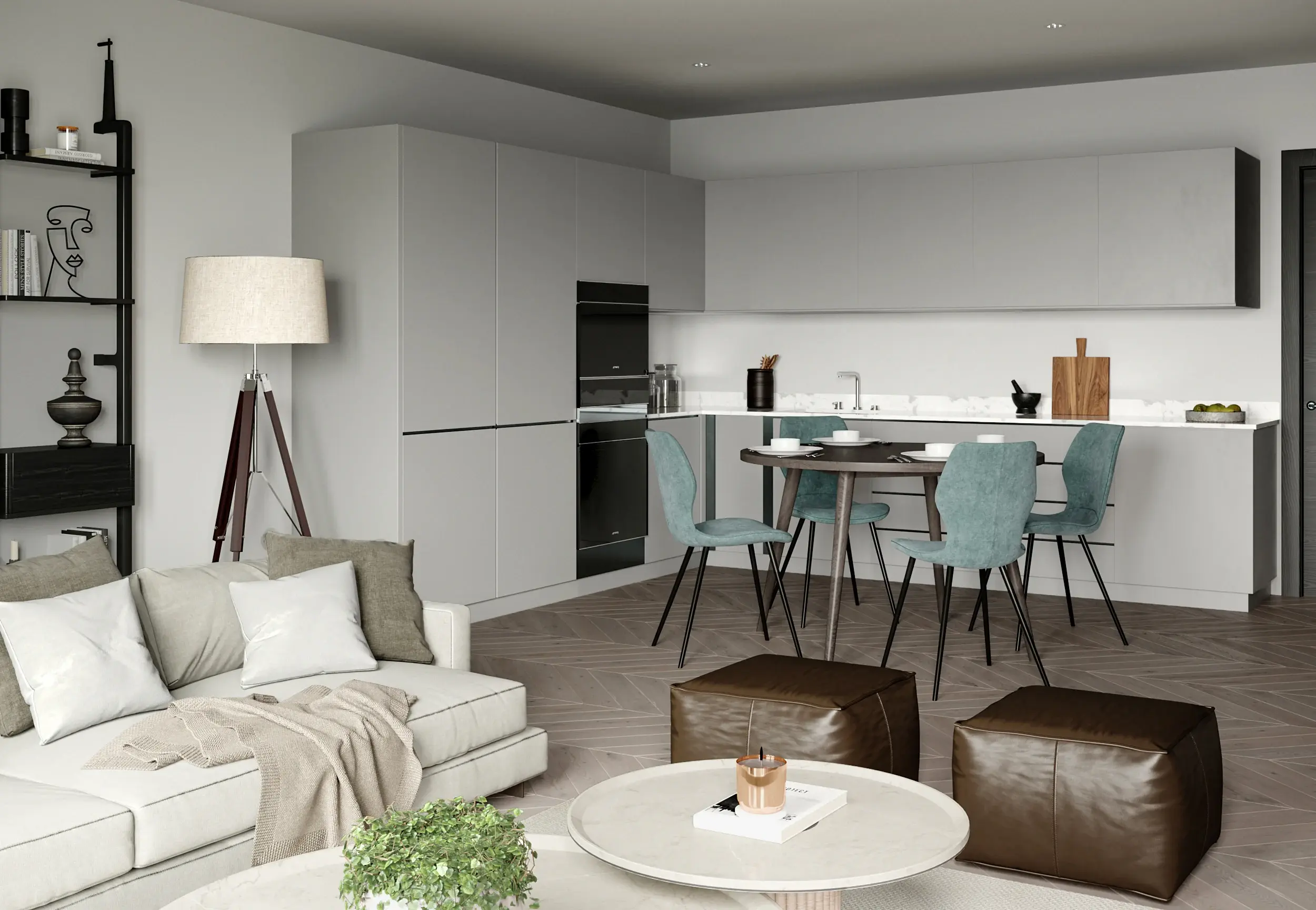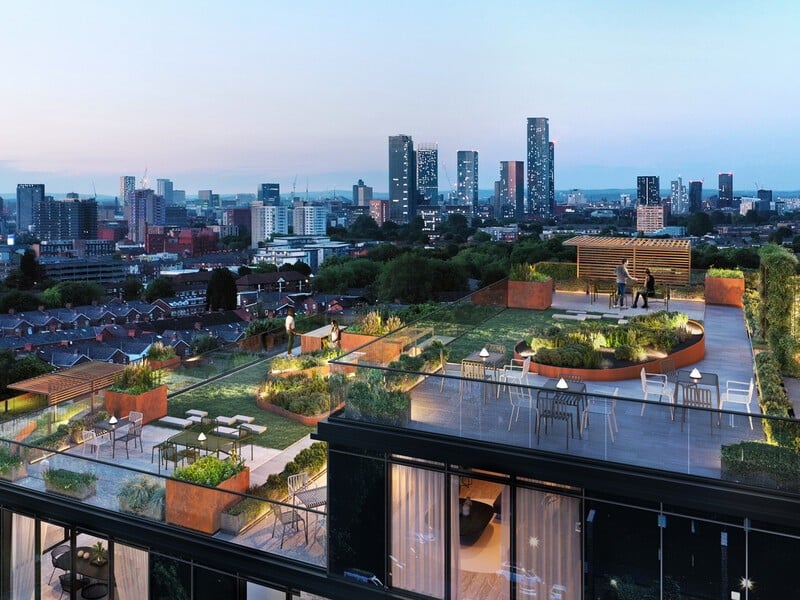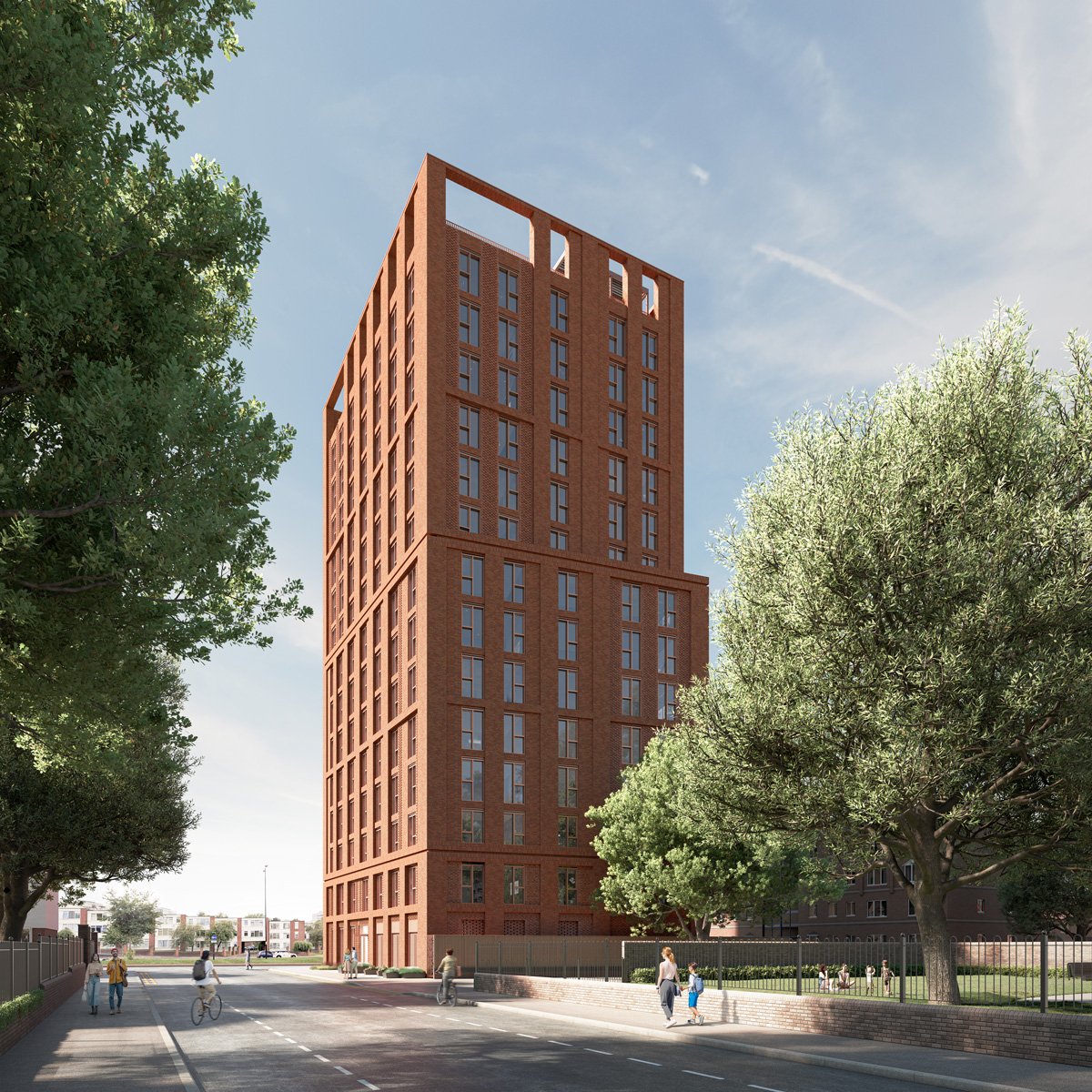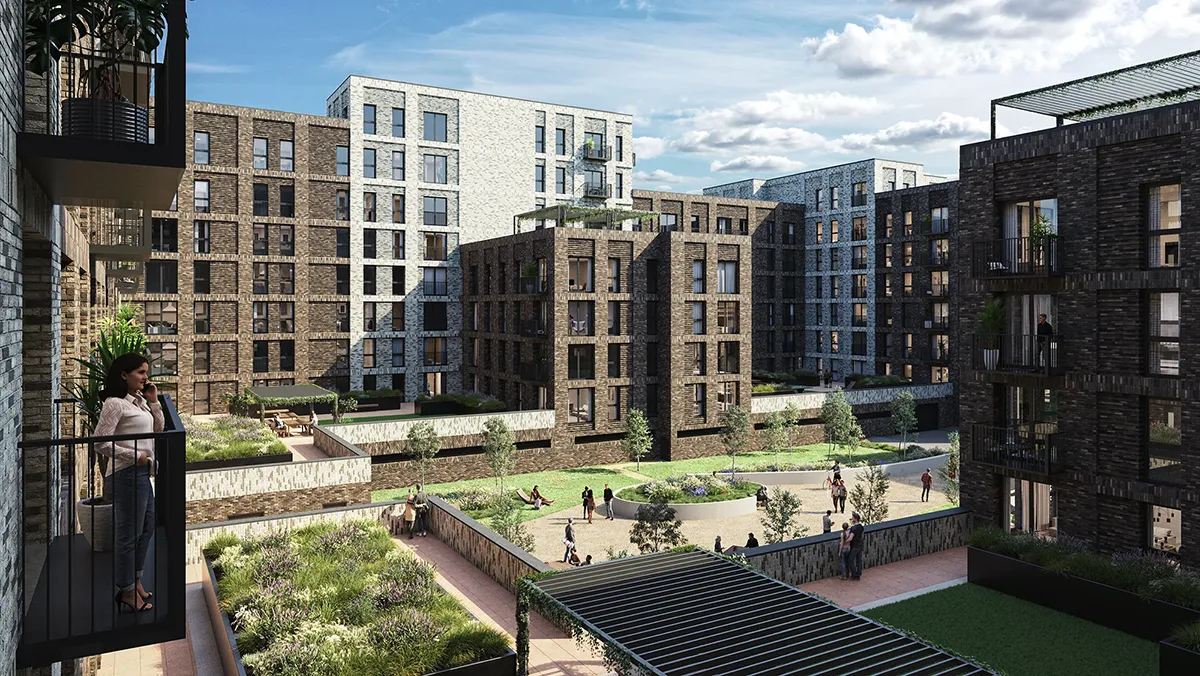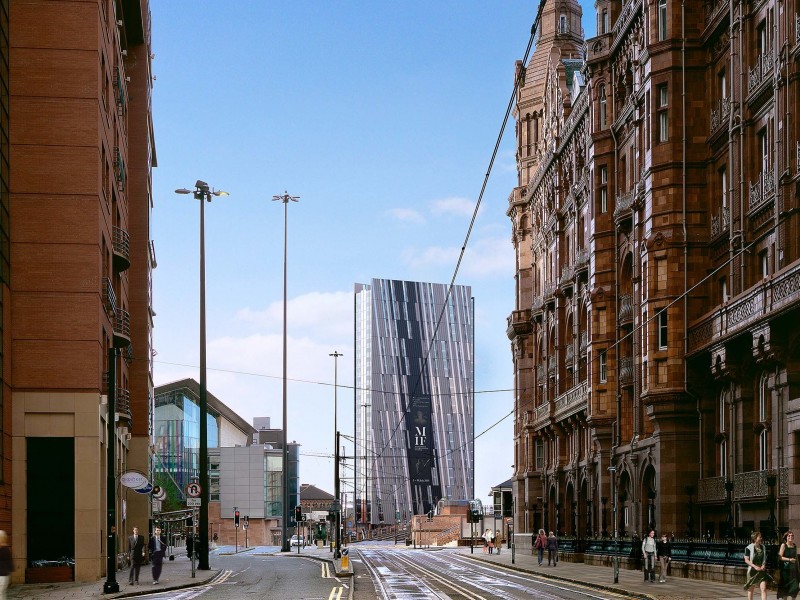What is off-plan property investment?

Off-plan property investment is when you buy a property before it is completed. This can be at any stage before construction begins, during the construction process or when it is in the final stages of work before it finishes.
There are many different types of property investment available, but UK off-plan property is one of the most popular. In this article we will explain more about what it is, how it works, how it differs from other forms of property investment and the advantages of investing in off-plan property.
How does off-plan property investment work?
Off-plan property investment is not too different to buying any other type of property. You will need to work out your investment goals, research the market and then find the right property for you.
The main difference comes with payment plans. Unlike a completed property, you won’t have to pay the full balance immediately in order to secure the property. Instead, you pay a small deposit, and then the balance later.
This will look different depending on which property you are buying and what payment terms the agent has in place. However, a good illustrative example would see you pay a percentage on exchange of contracts and then the rest either in stages at set points during construction or the balance at the end.
Once the property is complete, you can sell it or hold onto it. If you choose the latter, you can let the property to a tenant to earn rental income, potentially with the aid of a professional lettings and management company.
How does off-plan property differ from other types of investment property?
All types of investment properties are slightly different and suitable for different purposes. A quick rundown of different types is as follows:
- Off-plan properties – Buying off-plan property means that you are purchasing before it is completed. This can be done from the planning stage onwards. To learn more about the advantages of off-plan investment, keep reading below.
- Traditional residential property – Investing in traditional residential property means buying somewhere that is already completed and operational. In theory, these properties can be rented out immediately on a short- or long-term basis. However, this is not always the case as completed properties can present their own challenges. Unlike an off-plan property, this property type can come with pre-existing maintenance issues that need resolving right away, or they may not meet the required standards for letting. In either case, expensive remedial work will need to be carried out. On the other hand, a completed property that is already in operation will present less of a risk to many and be attractive for that reason.
- Student property – The other common alternative investment in the world of property is Purpose-Built Student Housing (PBSA). Tenant demand is generally growing in most major university towns and cities, and you are likely to be able to rely on occupation rates. However, the other side of this is that it will not be occupied for 52 weeks a year like a residential property. Entry prices are often lower, but the lack of year-round rental income is a stumbling block for many investors. Likewise, PBSA does not benefit from capital appreciation in the same way as residential property.
What are the benefits of investing off-plan?
Off-plan properties in the UK come with a whole range of advantages that you can benefit from in addition to the usual dual-income streams of rental returns and capital appreciation.
The main benefit is that you can maximise your capital appreciation by investing off-plan. Firstly, you will generally be paying a below-market rate to start with. This is because buying when a project is in construction is seen as a risk, and so the initial entry price is lower. This risk can be avoided as much as possible by choosing a company with a strong track record of delivering projects to market successfully.
Secondly, by the time your property reaches market, it will be worth much more than what you paid for it, assuming you have picked a growing market such as Manchester or Preston. This means that you will have earned instant capital appreciation. In the best markets, it is not uncommon to have earned a double-digit percentage on top of your initial purchase price.
To learn more about what will happen to property prices in 2023, read our article by clicking here >>
Once you have secured your property at below market prices and generated capital appreciation over its construction, you then come to paying the balance – and in the current market, this is a major benefit to buying off-plan property.
Mortgage rates are higher than they have been for many years. Buying a completed property with a mortgage in the current market means you will have pay the higher rate and possibly be locked into it for years to come. Buying off-plan means that you do not have to pay the balance until construction is complete.
All major brokers and analysts project that mortgage rates will be lower in the future as interest rates peak and then fall. Buying off-plan means that not only will you be getting a lower price in a temporarily depressed housing market, you will also pay less on the mortgage side of things on completion. It can offer you the best of both worlds.
Finally, the third major advantage of investing off-plan is that your purchase will be future proof. This applies in several ways. Firstly, you will not have to deal with major maintenance or structural issues as you might with a completed property. These can cost a lot of money to rectify, but this is not a factor when buying off-plan. Your property will be brand new and come with a 10-year warranty.
Secondly, buying a future proof off-plan property means that you will not have to worry about remedial works in the future when the Minimum Energy Efficiency Standards (MEES) increase. At the moment, each property gets an Energy Performance Certificate (EPC) rating and you cannot let out a property if it does not achieve at least an E grade. By 2025, it is expected that this will increase to a C grade for all new tenancies, and then a C grade for all properties with existing tenancies by 2028. Any property which does not meet these standards can make you liable for fines and cannot be let out.
Buying a new property off-plan means that you will not have to worry about this. New properties and buildings are designed with the newest sustainable materials and with a high EPC rating in mind. If you want to future proof your portfolio, buying off-plan is advisable.
Want to learn more about investing and off-plan property for sale? Get in touch with our team today by clicking here >>
Continue Reading
